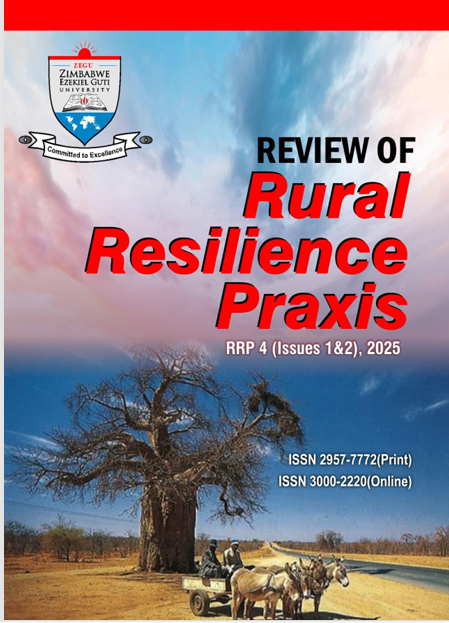Socio-Economic Impact of the Chinese Foreign Direct Investment in Gold Mining: The Case of Shamva District, Zimbabwe
DOI:
https://doi.org/10.71458/q3kme116Keywords:
investment, economic disparity, community development, infrastructure, social displacement, rent seeking behaviourAbstract
This article investigates the socio-economic impact of Chinese Foreign Direct Investment (FDI) in gold mining within Zimbabwe’s Shamva District, exploring both its benefits and challenges. Employing a qualitative research paradigm and semi-structured interviews, the research highlights opportunities such as job creation, infrastructure development and technology transfer. This approach enables in-depth understanding of complex socio-economic phenomena, capturing nuanced and contextual insights. Fifty participants (50), including local miners, community leaders, government officials and Chinese mining representatives, were purposively selected to ensure a diverse and relevant sample. Key challenges identified include environmental degradation, economic disparities and social displacement, exposing the negative consequences of FDI. Findings reveal that while FDI contributes to some economic opportunities, it also causes significant environmental harm and social disruption. Issues such as community marginalisation and insufficient benefits distribution exacerbate these impacts. The study underscores the need for inclusive decision-making, robust governance frameworks and community engagement to mitigate adverse effects and ensure sustainable development. Recommendations focus on fostering transparency, accountability and community participation in FDI projects. By addressing these critical issues, the research provides valuable insights for policy-makers, stakeholders and communities, aiming to optimise FDI benefits, while achieving balanced, equitable development in Shamva District.




